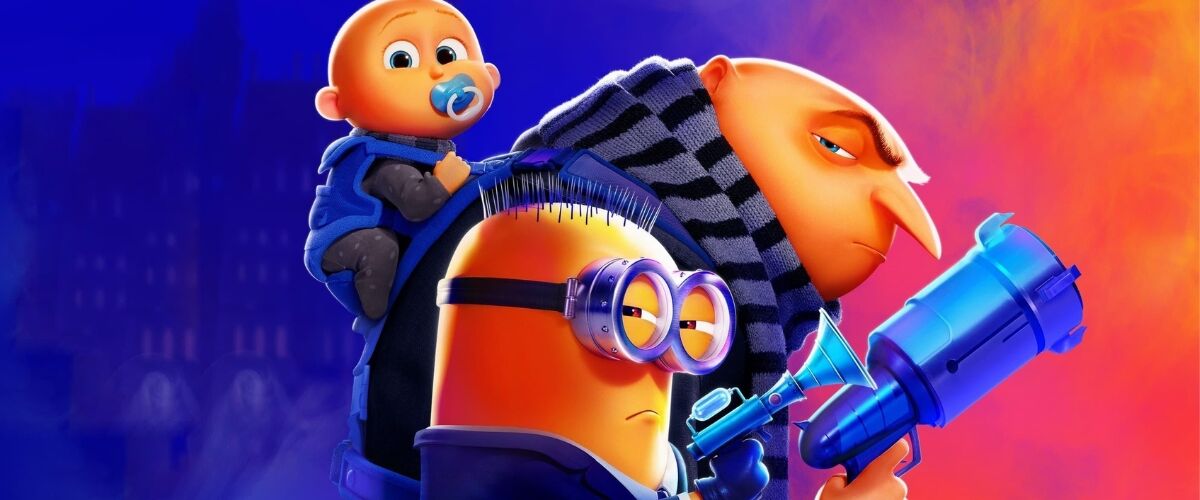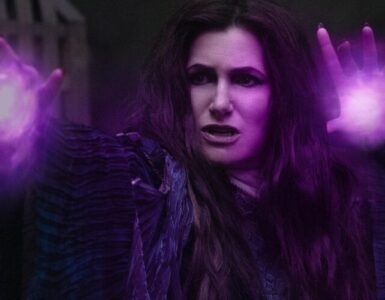Good storytelling transcends age, resonates with both young and old and crafts narratives that stir the soul and spark the imagination, much like the original Star Wars saga or Pixar’s beloved classics. However, not all franchises aim to pluck at the heartstrings or challenge the mind so they never aim that high, as is the case of Illumination’s unapologetically silly and zany Despicable Me franchise.
From the mischievous Minions to the bumbling antics of Gru (Steve Carell), the series has consistently delivered laughs and entertainment, primarily aimed at younger audiences tickled by fart jokes, pratfalls, and chaotic energy reminiscent of Tom & Jerry or Looney Tunes.
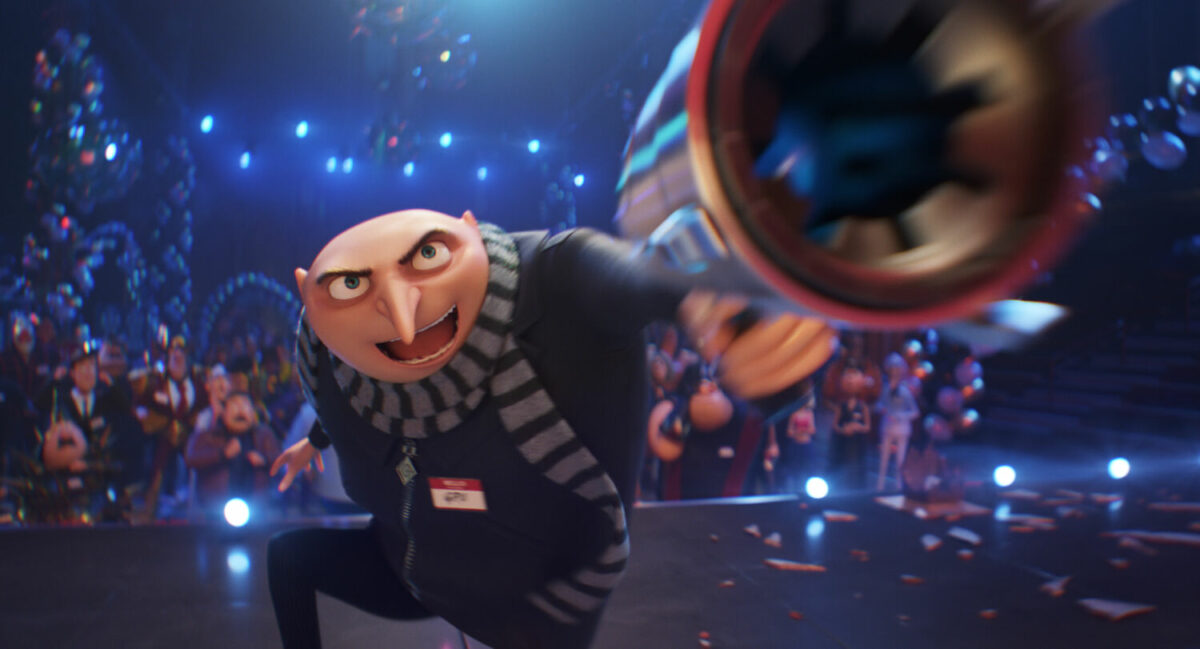
Despite this, it is obvious that Illumination has attempted to weave in more mature themes of redemption, love, and family into the Despicable Me narrative, hoping to engage the adult audience who may have reluctantly accompanied their children to the theatre. This brings us to Despicable Me 4, helmed by veteran Despicable Me director Chris Renaud, who attempts to continue this trend.
Yet, a discerning eye might notice a shift in the franchise’s storytelling approach, leaning more towards disjointed, sketch-like sequences haplessly strung together over the course of 90 minutes, and less on cohesive narratives. This evolution – or devolution, some might argue – which is readily apparent in recent Illumination films including both Minions (2015, 2022) spin-off films, The Grinch (2018), and Migration (2023), has unfortunately infiltrated the core Despicable Me franchise, culminating into an entry that sacrifices storytelling for a string of loosely connected gags.
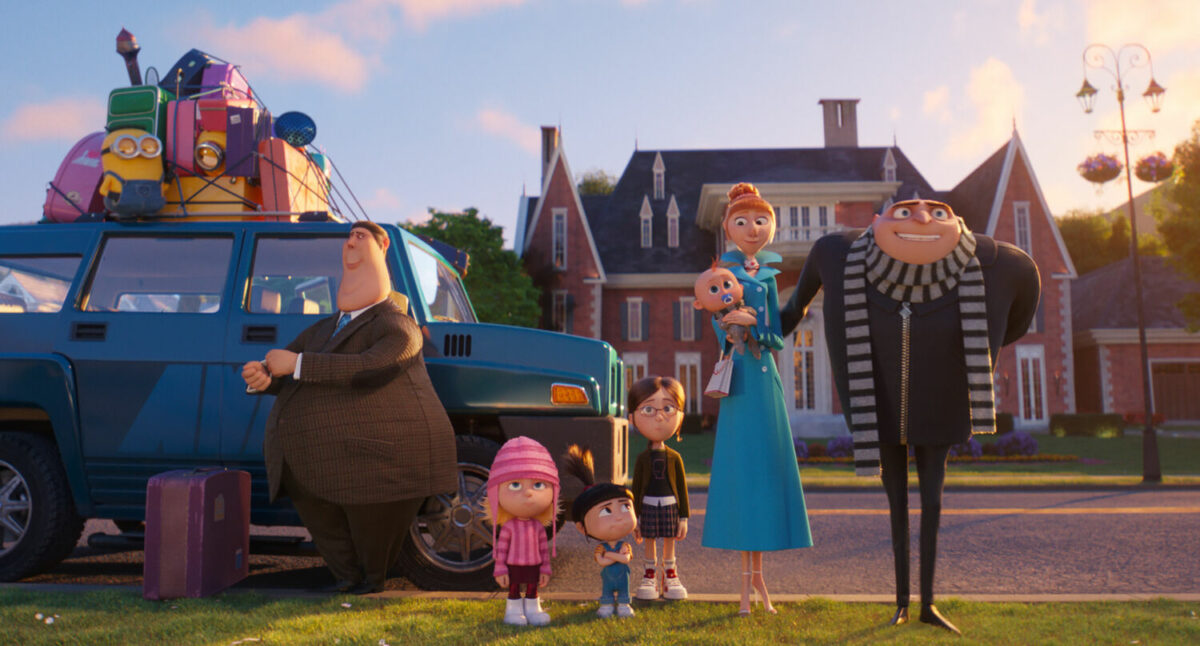
Felonius Gru, voiced again by Carell (The Office, IF), remains a reformed villain deeply devoted to his family – wife Lucy Wilde (Kristen Wiig, Wonder Woman 1984, Bridesmaids), and his adopted daughters Margo (Miranda Cosgrove, iCarly, Drake & Josh), Edith (Dana Gaier, The Ice Cream Truck), and Agnes (voiced by newcomer Madison Polan, replacing Elsie Fisher and Nev Scharrel from the previous movies). The newest addition to Gru’s family is Gru Jr., a mini version of himself… albeit with more hair.
While the arrival of Gru Jr. hints at a potential exploration of evolving family dynamics, Despicable Me 4 instead disperses its focus across a multitude of subplots. Margo, Edith, and Agnes are relegated to predictable storylines of schoolyard drama and personal quests, while the Minions, ever-present and always chaotic, provide comedic relief that ultimately feels tangential to the central narrative. This fourth outing struggles to answer the question of how it adds to our understanding of these beloved characters, and instead relies heavily on our pre-existing affection for the franchise, expecting a heavier emotional investment into personalities that have remained largely static over the course of fourteen years and four main films. This lack of character evolution, coupled with a world that feels frozen in time, leaves Despicable Me 4 feeling more like an uninspired rehash than a bold new chapter.
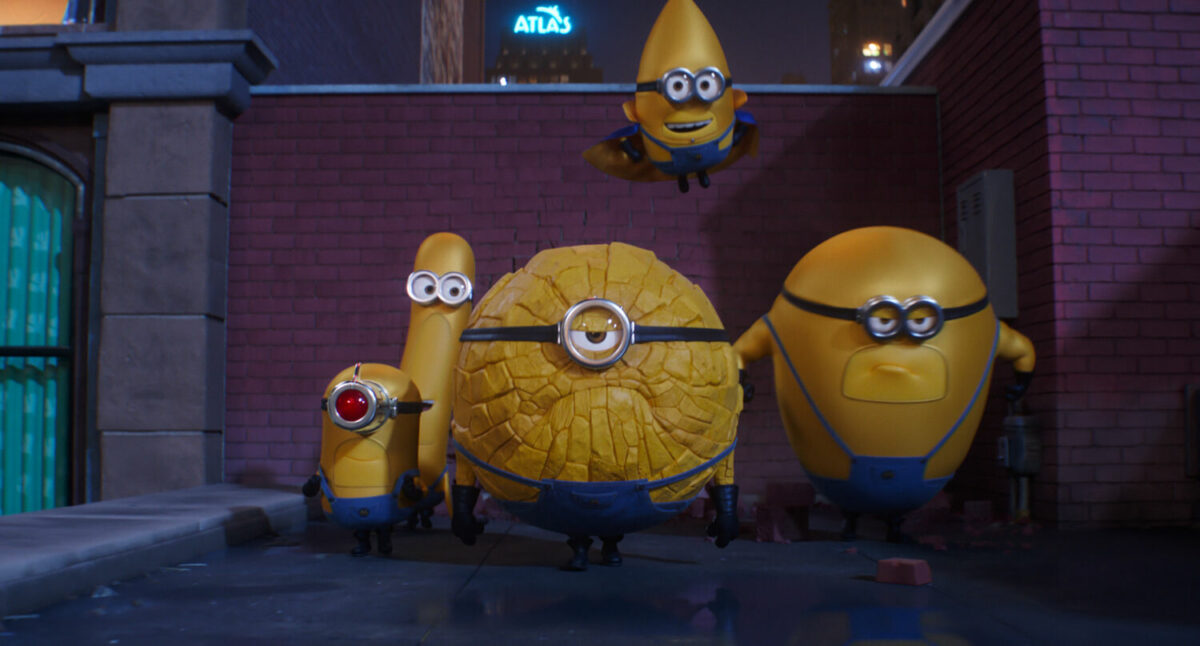
The film’s reliance on the Minions’ popularity is evident, with a significant portion of the runtime dedicated to their antics that don’t factor into the main narrative, but will likely please their legion of young fans. Their transformation into superhero parodies, aka the Mega Minions, is amusing in its own right. The sequence where the Mega Minions attempt to save the day, only to fail spectacularly and ultimately cause more destruction to civilians (something which superhero films from certain franchises usually ignore), is a clever jab at the oversaturation of the superhero genre, but does little to advance the film’s overall narrative.
While the Minions may steal the show, the film’s core characters are left underdeveloped. Gru’s encounter with his old nemeses, Maxime Le Mal (Will Ferrell, Megamind, Barbie) and his femme fatale girlfriend Valentina (Sofía Vergara, Modern Family, Griselda), and the subsequent witness protection storyline offer potential glimpses of deeper emotional exploration but are never revisited, and are instead replaced by yet another subplot of Gru mentoring a young aspiring villain, Poppy Prescott (Joey King, Bullet Train, The Kissing Booth) who blackmails him into helping her with a heist, resulting in a film that feels fragmented and unfocused and held together by a series of loosely connected gags and set pieces.
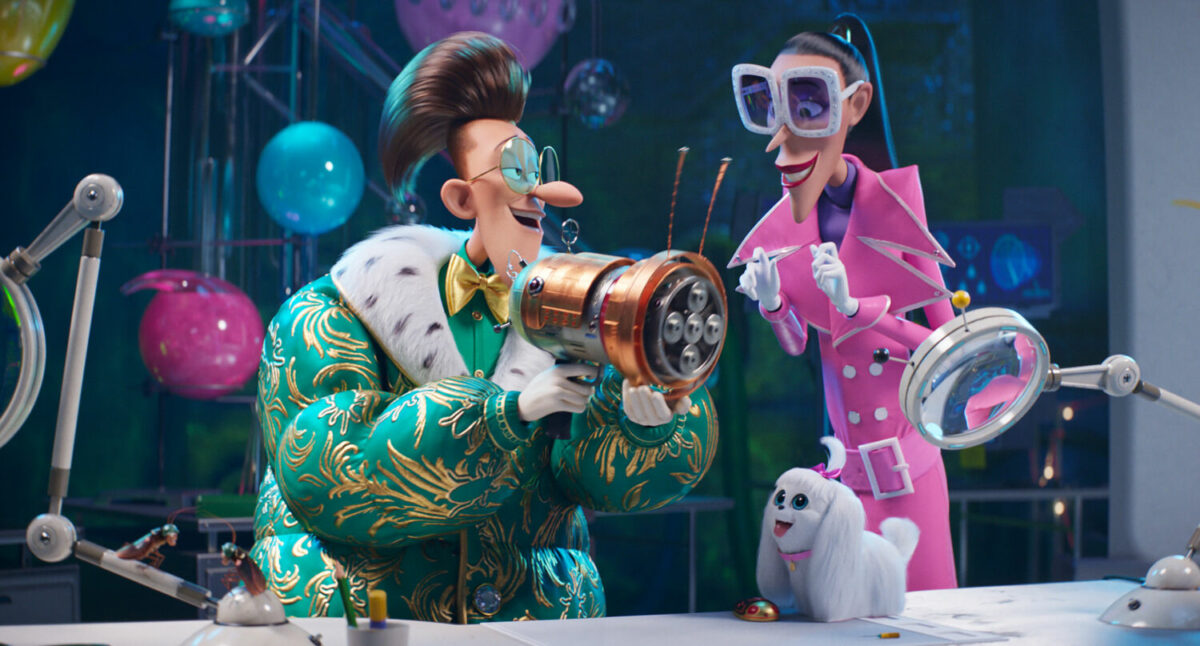
Nevertheless, Despicable Me 4 does somewhat deliver on kid’s entertainment, fulfilling Illumination’s goal of eliciting laughter rather than tears – a stark contrast to the emotional journeys often crafted by other leading animation studios. The film leverages its comedic assets well, with Ferrell’s Maxime Le Mal adopting a faux-French accent that humorously clashes with Gru’s Eastern European inflection, particularly in a musical duet that is as bizarre as it is amusing. Singer Pharrell Williams returns to set the musical tone for the franchise, blending new catchy tunes with vibrant needle drops that enhance the film’s energetic vibe. Among the vocal performances, Vergara’s portrayal of Valentina stands out, bringing a charm and humour reminiscent of her role as Gloria Delgado-Pritchett in Modern Family (2009-2020).
In the end, Despicable Me 4 is a bit like a Minion-themed amusement park that is filled with colourful distractions and fleeting moments of fun, but ultimately lacking in substance and emotional depth. While children may revel in the slapstick humour and chaotic energy, adults may find themselves yearning for something less deplorable.
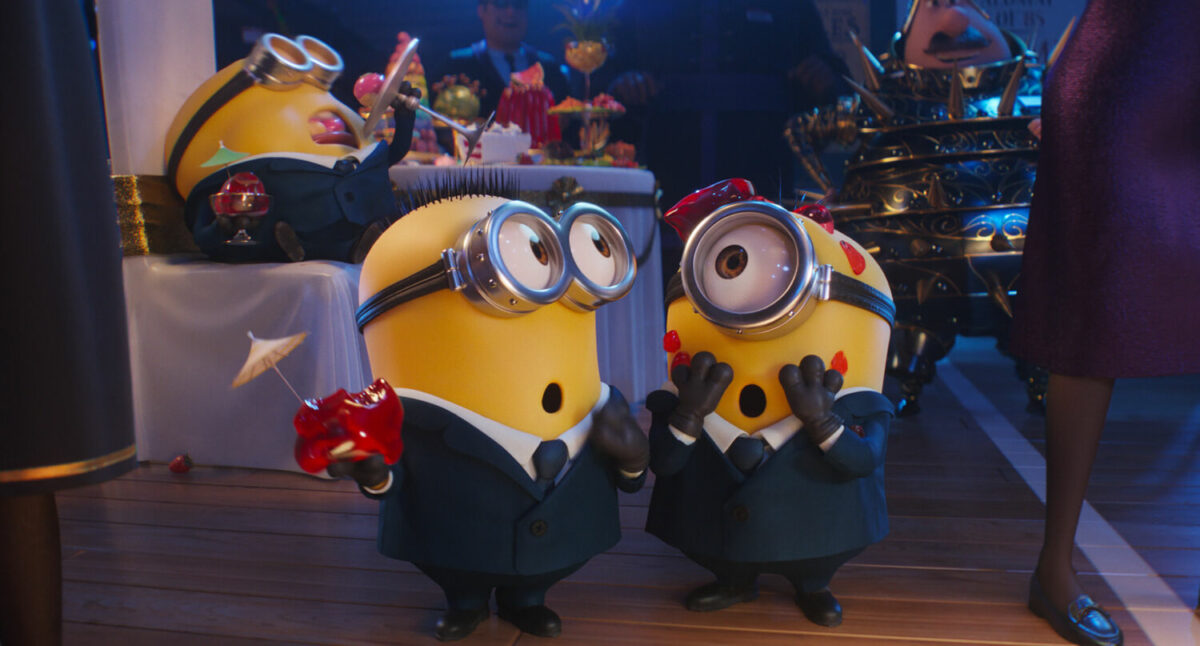
While no one expects top-notch drama from a Despicable Me film, the success of recent movies like Inside Out 2 demonstrates that animated films can captivate both children and adults with compelling storylines and well-developed characters. Illumination seems content to rely on the franchise’s established popularity, churning out films that prioritise spectacle over substance. This may be a winning formula at the box office, but it leaves a lingering sense of disappointment for those who yearn for the franchise to reach its full potential.
GEEK REVIEW SCORE
Summary
It’s a shame, really. Despicable Me 4 delivers a scattergun narrative that tries to serve too many subplots, resulting in a film that feels cluttered and hastily assembled.
Overall
5.5/10-
Story - 5/10
5/10
-
Direction - 5/10
5/10
-
Characterisation - 6.5/10
6.5/10
-
Geek Satisfaction - 5.5/10
5.5/10

